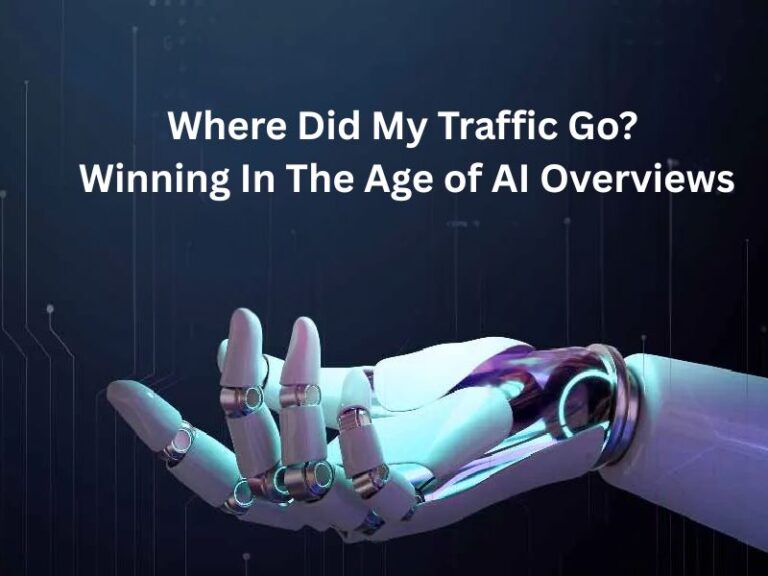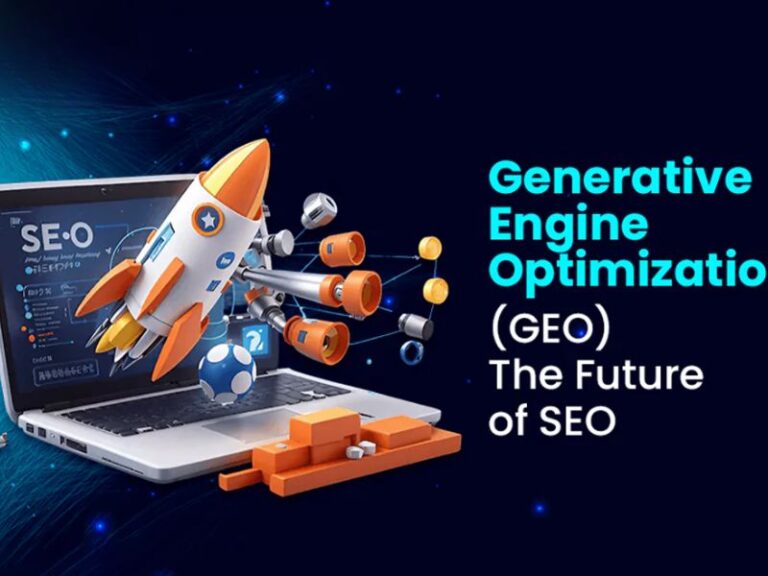The search landscape is undergoing a massive transformation in 2025. Traditional SEO tactics are no longer enough to stay competitive, as artificial intelligence (AI) and large language models (LLMs) are reshaping how search engines process, rank, and deliver information. Businesses and marketers must stay ahead of these changes to remain visible in organic search results. In this article, we’ll explore the most impactful Search Engine Trends for 2025 and provide strategies for adapting to this new era of search evolution.
Decoding the Future of Organic Search
Organic search is no longer just about keywords and backlinks. The rise of AI-driven algorithms has made search engines smarter, faster, and more personalized than ever before. By understanding these Search Engine Trends, brands can create content that resonates with both machines and users.
The AI and LLM Revolution
Artificial intelligence and LLMs are at the heart of modern search evolution. These technologies enable search engines to interpret user intent with incredible precision. For instance, generative search engines now provide instant, contextually relevant answers instead of just listing links. This trend is transforming the way people interact with search platforms and forcing marketers to rethink their Search Engine Optimization Tactics.
Why LLMs Are Game-Changers
Large Language Models like GPT and Gemini are capable of analyzing complex queries and delivering nuanced results. They move beyond basic keyword matching, focusing instead on semantic understanding. This makes content quality and context more important than ever for ranking well in organic search results.
Personalization at Scale
Another major shift in Search Engine Trends is the rise of hyper-personalized search. AI algorithms now tailor results to individual users based on their browsing history, behavior, and preferences. This means two people searching for the same term could see completely different results, making SEO strategies more complex.
Key Trends Shaping Search in 2025
As AI and LLMs continue to advance, several trends are emerging that marketers and businesses must pay attention to. Understanding these trends is crucial for staying competitive in organic search.
1. Generative Search Experiences
Generative search is one of the most transformative Search Engine Trends of 2025. Instead of merely displaying links, search engines now generate comprehensive, AI-powered summaries. This means users can get answers instantly without needing to click through multiple websites.
Example of Generative Search
If a user searches for “best SEO practices,” the search engine might display a concise, AI-generated guide on the results page. To remain visible, businesses must adapt by optimizing for generative algorithms, also known as Generative Engine Optimization.
2. Voice Search Domination
Voice search has been growing for years, but in 2025, it’s becoming a dominant force. With smart devices and AI assistants becoming ubiquitous, more users are performing voice-based searches. This trend requires businesses to optimize content for natural, conversational language to align with voice queries.
Voice Search Optimization Tips
- Focus on long-tail keywords and question-based queries.
- Use structured data to help search engines understand your content.
- Create FAQ sections to capture conversational search traffic.
3. Zero-Click Search Rise
Zero-click searches are searches where users find answers directly on the search results page, without clicking any links. With the rise of AI-generated summaries, zero-click searches are increasing dramatically. This forces brands to rethink how they capture and measure user engagement.
How to Adapt to Zero-Click Searches
To stay relevant, businesses should focus on branding and visibility rather than just clicks. Appearing in featured snippets or AI summaries builds authority even if it doesn’t drive immediate traffic.
4. Greater Emphasis on E-E-A-T
Expertise, Experience, Authoritativeness, and Trustworthiness (E-E-A-T) are becoming even more crucial in 2025. Search engines use these factors to determine which content is credible enough to appear in results, especially in industries like health, finance, and law.
Ways to Improve E-E-A-T
- Include author bios with credentials.
- Link to authoritative external sources.
- Publish original research and case studies.
5. Visual Search Expansion
Visual search is gaining traction as users rely on images and videos to find products and information. Platforms like Google Lens and Pinterest are driving this shift, making visual optimization a priority for businesses in 2025.
Visual SEO Best Practices
- Use descriptive alt text for images.
- Optimize image file sizes for faster loading.
- Include relevant keywords in image metadata.
Adapting to the New Search Landscape
Understanding Search Engine Trends is only the first step. The real challenge lies in adapting your strategies to thrive in this new environment. Below are actionable steps to future-proof your organic search efforts.
Create Content for Humans and Machines
While AI algorithms are powerful, they prioritize content that genuinely serves users. Create high-quality, informative, and engaging content that addresses user needs. At the same time, structure your content in a way that AI can easily interpret.
Content Structuring Tips
- Use clear headings and subheadings.
- Incorporate bullet points and numbered lists for readability.
- Include schema markup to provide additional context to search engines.
Leverage Structured Data
Structured data helps search engines understand your content better, increasing the chances of appearing in rich results and AI-generated summaries. This is particularly important as generative search becomes the norm.
Focus on Topic Clusters
Instead of creating isolated blog posts, build interconnected topic clusters around core themes. For example, if your niche is SEO, you might create a central hub on search optimization with supporting content like AI-driven SEO, voice search, and user experience. This signals topical authority to search engines.
Measuring Success in the Age of AI Search
Traditional SEO metrics like click-through rates and rankings are no longer sufficient. As search engines evolve, businesses must adopt new ways to measure success in organic search.
Key Metrics to Track
- Brand visibility in AI-generated results.
- User engagement metrics like time on page and scroll depth.
- Conversion rates from branded and non-branded traffic.
- Voice search performance and featured snippet appearances.
Using Analytics Tools Effectively
Modern analytics platforms can help you track these advanced metrics. Google Search Console, for instance, now offers features to monitor generative search visibility. Third-party tools like SEMrush and Ahrefs also provide insights into how Search Engine Trends are impacting your site.
Challenges Marketers Must Overcome
Adapting to these new trends isn’t without challenges. Marketers face several obstacles as they navigate the evolving search landscape.
Content Saturation
As more businesses adopt AI-driven strategies, the volume of content online is exploding. Standing out requires unique perspectives and value-added insights that generic AI content cannot replicate.
Constant Algorithm Updates
Search engines frequently update their algorithms to improve user experience. Staying up-to-date with these changes is essential to maintain and grow your organic search visibility.
Balancing AI and Human Creativity
While AI tools are invaluable, relying solely on automation can result in generic content. The most successful strategies combine AI efficiency with human creativity and expertise.
The Role of Generative Engine Optimization
As generative search becomes more prevalent, a new discipline known as Generative Engine Optimization (GEO) is emerging. GEO focuses on optimizing content for AI-driven search experiences. Businesses that embrace GEO early will gain a competitive edge in the evolving search ecosystem.
Core Principles of GEO
- Providing comprehensive, accurate answers to user queries.
- Structuring content for machine readability.
- Maintaining transparency and credibility in all published materials.
Future Predictions for Search
Looking ahead, several trends are likely to shape the next phase of organic search:
- AI assistants will become the primary interface for search.
- Search engines will rely heavily on user-generated content and feedback loops.
- Multimodal search, combining text, voice, and visual inputs, will dominate.
- Generative Engine Optimization will become as essential as traditional SEO.
Conclusion
The search landscape in 2025 is evolving at an unprecedented pace. AI and LLMs are driving innovation, making search engines smarter and more user-focused than ever before. By understanding and adapting to these Search Engine Trends, businesses can stay ahead of the competition. Focus on creating high-quality, human-centric content, leveraging structured data, and embracing emerging practices like Generative Engine Optimization. The future of search belongs to those who are willing to innovate, experiment, and evolve alongside the technology shaping it.






